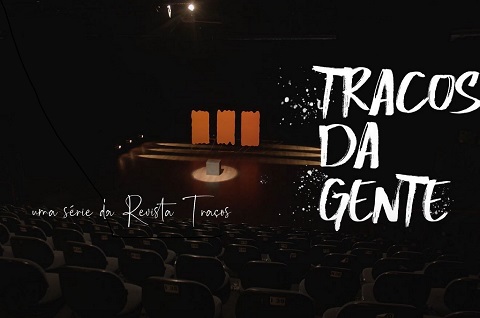On the arrivals day of the 2019 Global Street Paper Summit, as with most that have gone before it, delegates are given the opportunity to learn about the street paper host – in this case, Hannover’s Asphalt – and the city they will be spending the next few days in.
To a group of delegates hailing from Norway, Canada, Sweden, Japan, the US, Hungary, Australia, Finland, and wider Germany, Asphalt staff and volunteers explained how the street paper serves 178 vendors in Hannover and wider Lower Saxony.
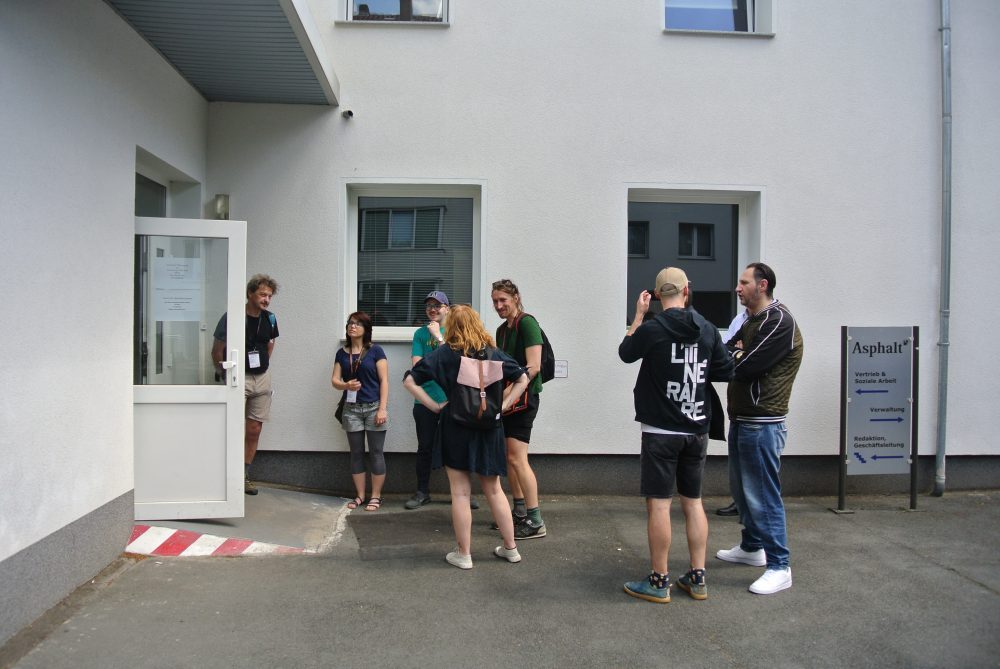
Distribution manager Thomas Eichler addressed those attending delegates, as well as happily fielding questions, on the ins and outs of being an Asphalt vendor, as those same people dropped in and out to buy street papers. He explained that of the 98 vendors in the city of Hannover, 4 are living on the street, 36 are retired with a minimal stare pensions, 15 are “flat-less” (an important distinction from homelessness in Germany), and 34 are immigrants or “people with a migration background”.
Asphalt, which like INSP celebrates its 25th anniversary this year, serves its vendors with 22,500 printed street papers a month (with this number fluctuating from time to time) and 590 pitch locations.
The Hannover street paper also provides a variety of social projects for its vendors to participate in, including a group breakfast once a month, biking twice a year, bowling four times a year, fitness and stress relief exercises, and, as of this month, hiking and walking activities. As Eichler explained jokingly, “if there is time at the end, they will come to buy the magazine!”
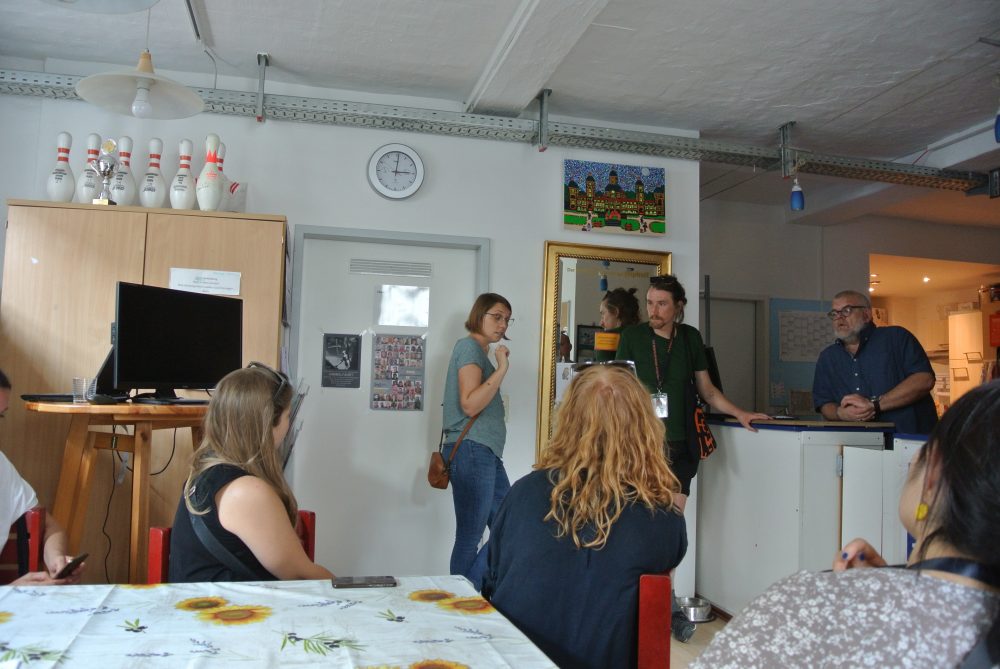
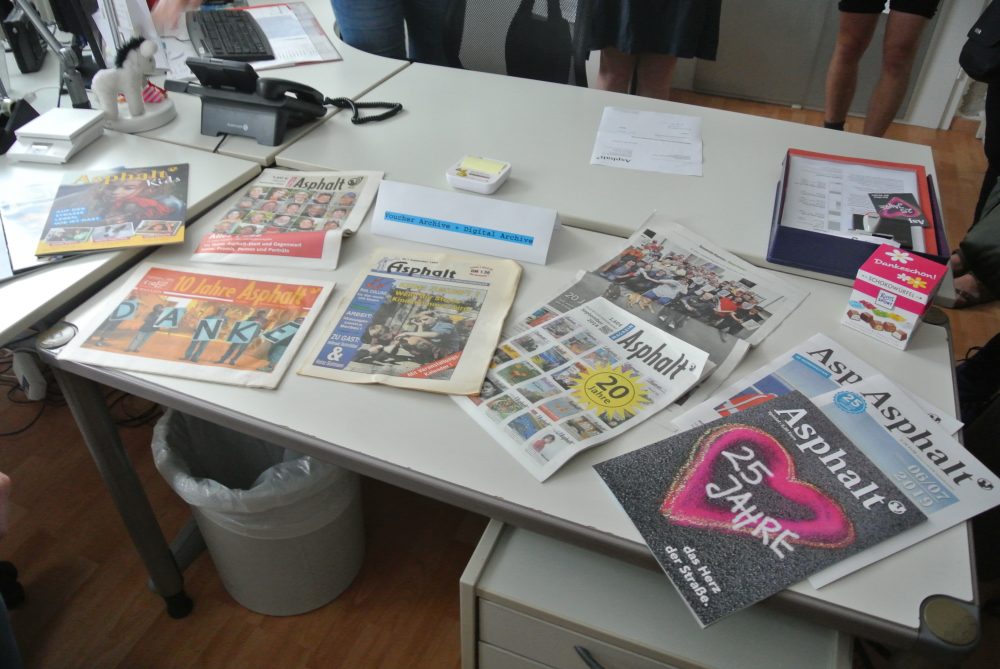
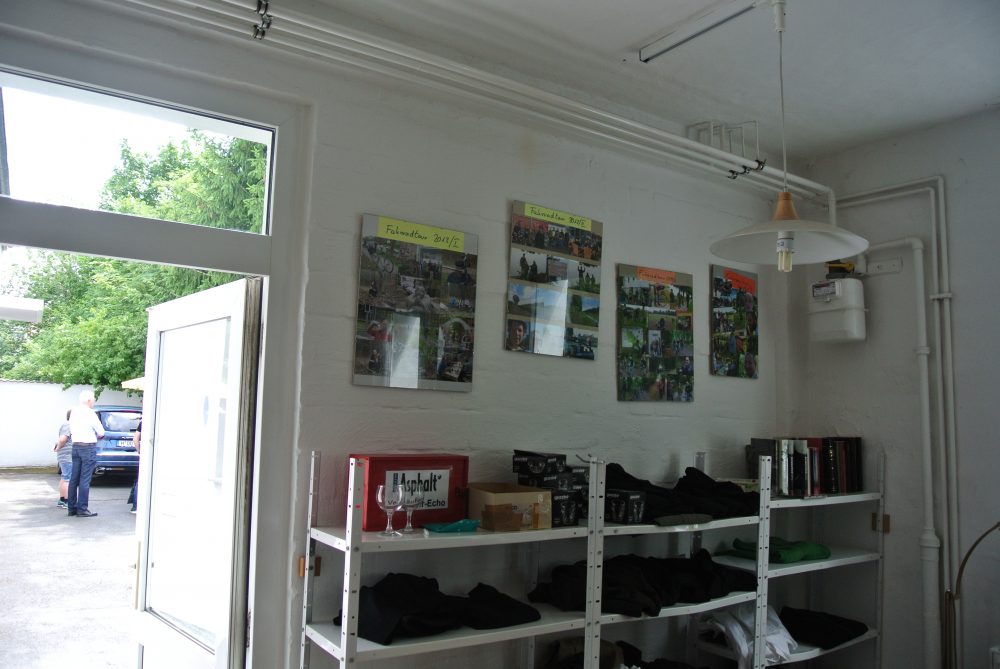
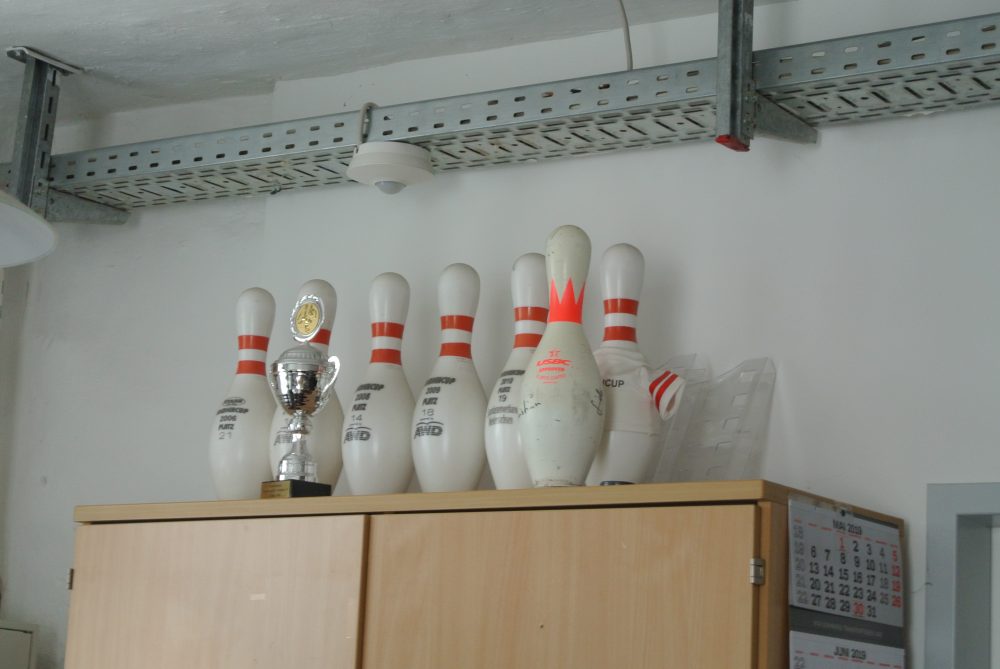
More seriously, he described some of the challenges they face when supporting their vendors, touching on bureaucracy hurdles, reaching social health services, and entering the job market.
Asphalt also presented their integrated software system which keeps track of sales to vendors, pitch management and other important vendor-related information.
As our delegates arrive in #Hannover, a group are heading off for a social city tour of the city, taking in a trip to local street paper Asphalt. pic.twitter.com/L6nGkLKfoq
— International Network of Street Papers (@_INSP) June 17, 2019
Leaving the street paper’s office, one of their most successful vendors, Thomas, led delegates on a social tour of Hannover, pointing out where “flat-less”, and other people living on the street, can take showers, get something to eat, access to social services, and find a place to stay for the night.
First stop was a World War Two bunker that had been converted into a homeless shelter. Now a relic, Hannover’s city government has been slow to react to the needs of the city’s homeless community, according to Thomas. A lack of beds in shelters mean Hannover has 350 homeless people without a place to lay their head from night to night.
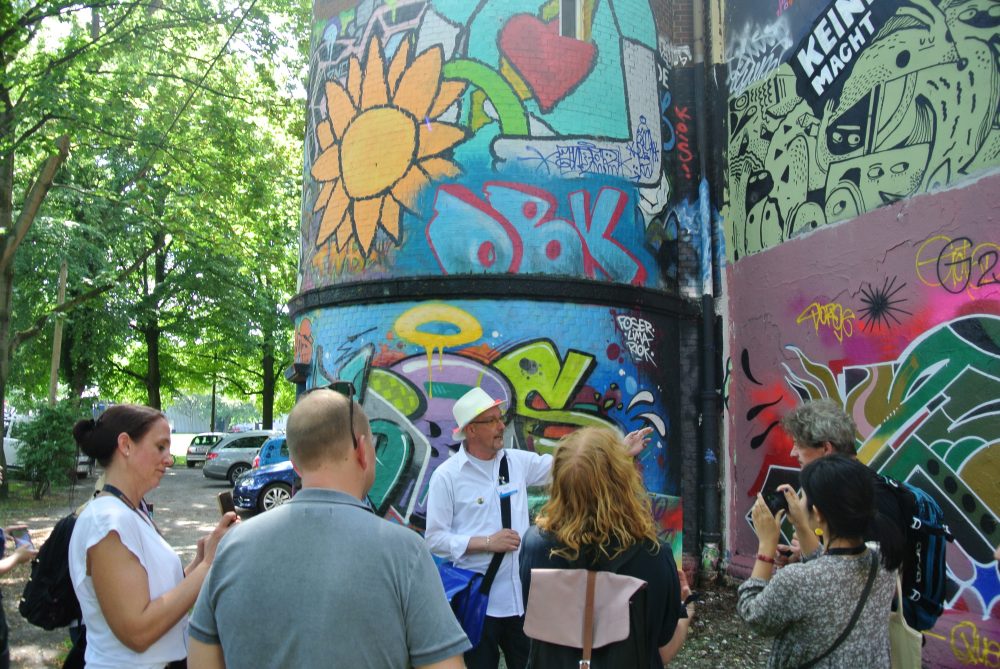
“This space could be used as a homeless shelter,” said Thomas of the still-standing bunker. “We need social accommodation. This is the same situation all over Europe. Instead of using this space for that, there is still this fucking bunker.”
Attached to the bunker was ‘Bed by Night’, a youth homeless shelter, and the only local authority provided accommodation for people on the street.
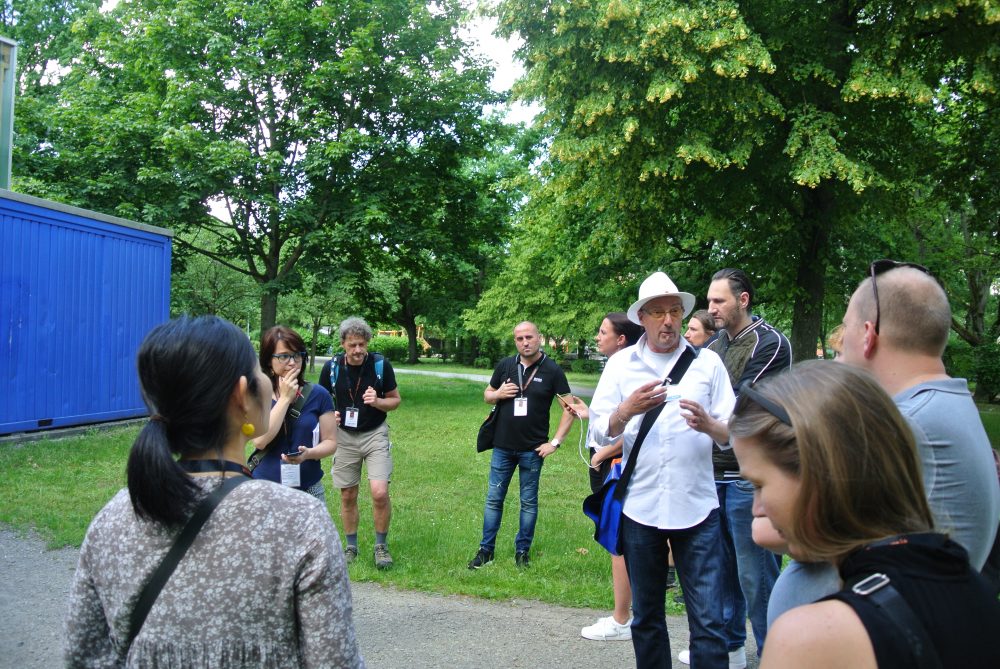
Thomas has been working with Asphalt for four years. After caring for a sick friend and staying at their flat, Thomas was evicted after their death. “I thought three weeks in a tent with my dog and looking for accommodation was no problem. But it turned out that was really fucking stupid.”
After turning to drugs and alcohol to cope, he resolved to get clean. He took delegates to different arms of the local organisation Neuesland, which provides accommodation for drug users to get clean ahead of seeking long-term therapy. It also has other locations – SOS Bistro and Kontaktcafe – which provide food, clothing and a cup of coffee or tea and place to get in from the cold in winter.
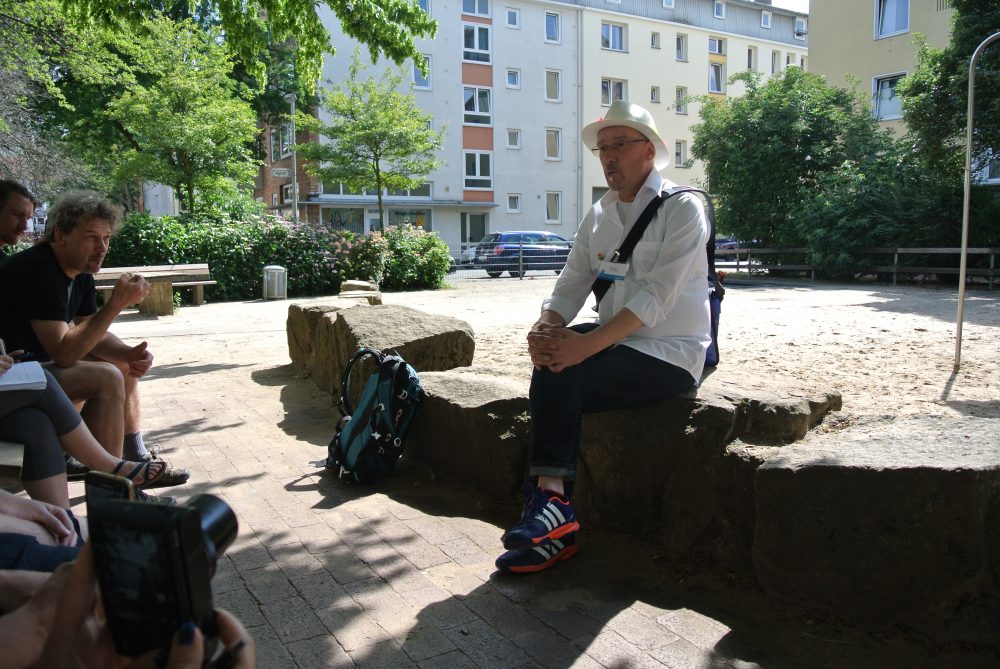
Thomas, 48, has personal experience of these places. Coming from a previously safe job as staff at a high-end restaurant, he is now a street paper vendor, an Asphalt tour guide and even a writer for the magazine. “Never as a high-class waiter would I have thought I would have been selling a magazine on the street. But now I am proud of what I do. I love this job and it’s important.”
Finally, Thomas exposes the best and worst of Hannover’s homelessness situation. First, a stop by Kontaktladen Mecki, a place where those without an address can register a postbox in their name in order to claim social benefits. The ‘Mecki’ of the name was a homeless person who died on day one of the organisation’s existence.
Round the corner is the back entrance of the city’s vast central station. Thomas explains that hard drug users gather there at night. On this occasion the hot weather has meant a congregation in the late afternoon. “This may be not a nice place, but it is important to show.”




















